Varleisha D – Certificate Course in Neurological Approaches for Self-Regulation
Original price was: $200.00.$60.00Current price is: $60.00.
You will walk away with neurologically tailored sensory strategies, cutting-edge treatment techniques, and sensory equipment strategies… including mindfulness, social skills, music and movement, and respiratory-based techniques.
- Description
- Reviews (0)
- More Products
Description
Varleisha D – Certificate Course in Neurological Approaches for Self-Regulation: Techniques for Kids with Autism, ADHD and Sensory Disorders
Do you work with kids demonstrating challenging behaviors such as hyper-activity, hypoactivity, aggressiveness, self-stimulation and inattentiveness? And maybe their parents or guardians are looking for more answers… and you’re not completely sure how to respond to “Why is this happening to my child?”
Knowing the underlying brain connections will help you better select and develop appropriate interventions for these disruptive behaviors. Join renowned self-regulation expert and author, Varleisha Gibbs, PhD, OTD, OTR/L, for this intensive certificate course and learn clinically proven neurological approaches to addressing self-regulation in children and adolescents diagnosed with Autism, Sensory Processing Disorder, and ADHD.
You will walk away with neurologically tailored sensory strategies, cutting-edge treatment techniques, and sensory equipment strategies… including mindfulness, social skills, music and movement, and respiratory-based techniques.
Connect underlying neurological components to clinical practice through:
- Brain dissection video wet labs, neuroanatomy, pathways, and function
- Autonomic nervous system and its connection to stress, fear, and primitive reflexes
- Video examples of children in a sensory clinic demonstrating positive outcomes when equipment is used appropriately
You will learn how to analyze and apply treatment techniques, such as:
- Activating the vagus nerve and the nervous system for regulation
- Addressing primitive reflexes and improve social skills and age appropriate behaviors
- Incorporating a mindfulness program for self-regulation
- Applying evaluation processes, treatment planning, goal development, and re-assessment of children displaying challenging social, eating, and sleeping behaviors
Plus, you’ll also receive first-hand demonstrations from a sensory clinic with a Sensory-Based In-Session, and walk away with over 80 exercises and worksheets from Dr. Gibbs’ popular eBook, Self-Regulation and Mindfulness — both included in your course tuition when you register today!
Advance your knowledge and your practice, when you end this course with a Certificate in Neurological Approaches for Self-Regulation! Whether you are an expert on the brain or new to this science, Dr. Gibbs makes it easy to understand and easy to implement. Transform your practice and your clients’ lives with an inspired, new outlook on self-regulation…
Modules 1-2
The Brain-Body Connection
Dr. Varleisha D. Gibbs, will show you how to differentiate between the characteristics of sensory processing disorder, ADHD and autism and how the neurological processes of each disorder coincide with one another. You’ll walk away with neurological approaches that tap into the central, autonomic, and enteric nervous systems to improve your clinical intervention techniques:
The Neuroscience Behind Self-Regulation
- A look at sensory-motor pathways
- Brain dissection video: The emotional brain and its connection to executive functioning
- Neurological dysfunction: Hyper-activity, hypo-activity, aggressiveness, self-stimulatory, and inattentiveness
Neuro and Sensory Integration: Linking to Behaviors
- Breaking down self-regulation: Sensory, cognition and emotions
- Self-regulation effects on behavior: Flapping, inflexibility, rigidity, lack of inhibition, poor social skills, risk taking
- The power of the autonomic nervous system and its connection to behavior (ie. stress, fear and primitive reflexes)
- The power of primitive reflexes and how they impede on function
- Tools and strategies for assessing primitive reflexes
Video Case Study Analyzation: Aligning Symptoms and Characteristics with Appropriate Interventions
- ADHD: Diagnosis and current treatment strategies
- Autism: Diagnosis and DSM-5® updates
- Sensory Processing Disorder (SPD):
- Sensory modulation disorder
- Sensory-based motor disorder
- Sensory discrimination disorder
Modules 3-4
Evidence-Based Clinical Interventions
Discover practical clinical interventions for challenging behaviors in clients, such as hyper-activity, hypoactivity, aggressiveness, self-stimulation and inattentiveness. You’ll learn how to implement music as a technique to initiate sensorial stimuli, calming and attentiveness in clients; and how to integrate a comprehensive mindfulness program to improve self-regulation in clients.
Self-Regulation Techniques and the Vagus Nerve Connection
- Communication strategies that provide control: Symbolic and non-verbal
- Self-management and behavioral strategies: Behavioral contracts, checklist for tracking behaviors, video modeling
- Addressing picky eating and poor sleep habits: Desensitizing and non-threatening activities
- Music as a technique to initiate sensorial stimuli, calming and attentiveness
- New interventions for vestibular, proprioceptive, auditory, smell and vision work
Apply Neuroscience to Interventions: Hands-on Activities
- Neurological connection of current programs such as Brain Gym®, sensory diets, and MeMoves™, just to name a few!
- Integrate a mindfulness program for self-regulation
- Address primitive reflexes and improve social participation and age appropriate behaviors
- Tool to assess child’s arousal levels to be used for daily schedules and to organize daily interventions
Treatment Planning: Video Case Examples of Children Displaying Challenging Social, Eating and Sleep Behaviors
- Perform a virtual evaluation
- Develop a treatment plan
- Goal development
- Re-assessment: When is it needed and when to discharge
Psychoeducation for Clients and Parents
- Evidence-based intervention and techniques to address challenges with self-regulation
- Address psychosocial concerns and experiences of caregivers of children with self-regulation challenges
- Communicate methods to address reciprocal regulation between the child and caregiver to address the influences and interaction each have
About Your Speaker
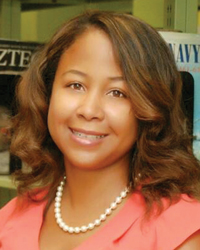
Varleisha D. Gibbs, PhD, OTD, OTR/L, is an occupational therapist and author with 17 years of experience working with children and adolescents diagnosed with Autism Spectrum Disorder, Sensory Processing disorders and Neurological disorders. Dr. Gibbs is the Scientific Programs Officer for the American Occupational Therapy Foundation. She is the inaugural chair and director of the master’s programs in occupational therapy and full-time associate professor at Wesley College in Dover, DE. Prior to joining Wesley, she worked at the University of the Sciences in Philadelphia, PA, where she served as the director of the doctoral programs in occupational therapy.
Dr. Gibbs is steadfast and an expert in the field of neurology, cognition, and pediatric therapeutic intervention. She continues to lecture, and provide training, on sensory processing strategies and self-regulation to practitioners, parents, and teachers throughout the country and internationally. Dr. Gibbs is the developer of the Self-Regulation and Mindfulness program, and her book, Self-Regulation and Mindfulness: Exercises and Worksheets for Sensory Processing Disorder, ADHD, and Autism Spectrum Disorder, was published in 2017 (PESI Publishing & Media). As co-author of Raising Kids with Sensory Processing Disorders, she has provided families with strategies to understand and care for their children.
In 2003, Dr. Gibbs founded Universal Progressive Therapy, Inc., a company that provides interdisciplinary and quality therapeutic services to families. As founding president, she provided treatment interventions and education in the areas of sensory integration, autism as well as family-centered care. Dr. Gibbs co-authored the publication, “Family-Centered Occupational Therapy and Telerehabilitation for Children with Autism Spectrum Disorders”, found in the journal of Occupational Therapy in Healthcare. She received her PhD at Seton Hall University with a dissertation focusing on the Autism Spectrum diagnosis. Dr. Gibbs earned her doctorate in occupational therapy at Thomas Jefferson University and her master’s training in occupational therapy from Columbia University.
Be the first to review “Varleisha D – Certificate Course in Neurological Approaches for Self-Regulation”
You must be logged in to post a review.
-
Christopher Carr – Basic Personal Trainer Course
Original price was: $139.00.$32.00Current price is: $32.00. Buy now -
Paul Zaichik – Easy Flexibility – Posterior Pelvic Tilt
Original price was: $29.95.$15.00Current price is: $15.00. Buy now -
-
Ted McGrath – Story Attraction Formula
Original price was: $197.00.$42.00Current price is: $42.00. Buy now -
Miki Shima – Mysteries Of The Needle Japanese Art Of Needling
Original price was: $37.00.$15.00Current price is: $15.00. Buy now -
$1K A Day Fast Track – Build 10K Email List FAST & Immediately
Original price was: $997.00.$92.00Current price is: $92.00. Buy now







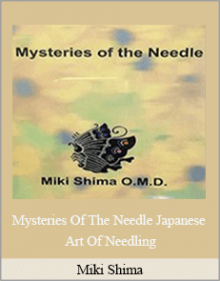


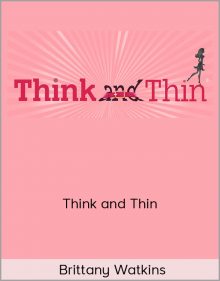
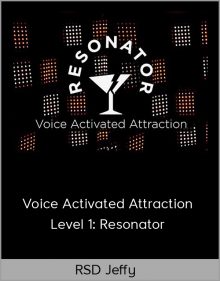

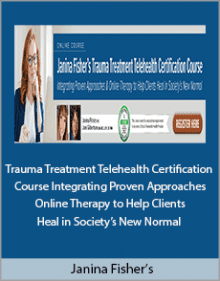

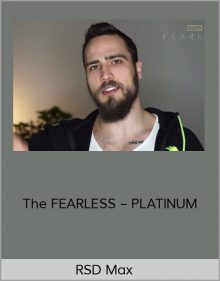


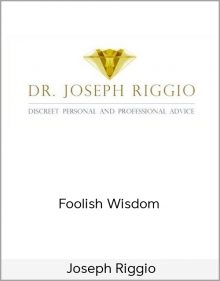


Reviews
There are no reviews yet.